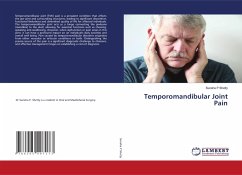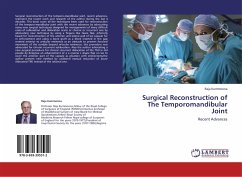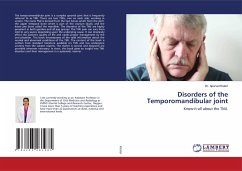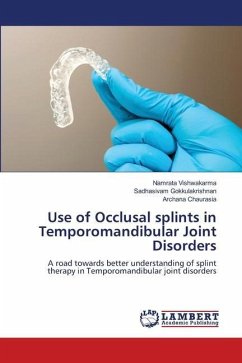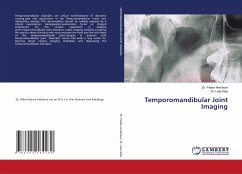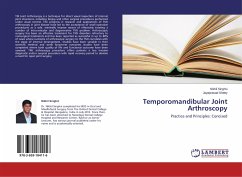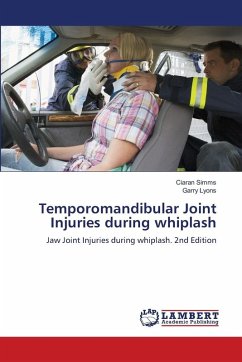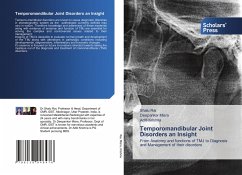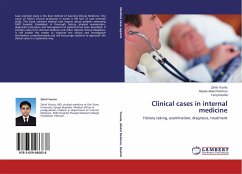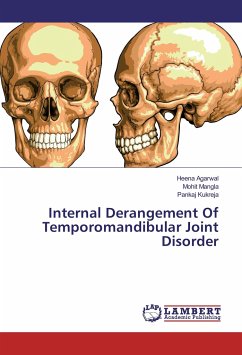
Internal Derangement Of Temporomandibular Joint Disorder
Versandkostenfrei!
Versandfertig in 6-10 Tagen
46,99 €
inkl. MwSt.

PAYBACK Punkte
23 °P sammeln!
The TMJ is a complex and unique joint structure that allows the mandibular condyle to move freely in both rotation and translation, with respect to the glenoid fossa. The TMJs are bilateral, diarthroidial, ginglymoid, synovial, and freely movable. The term ginglymoid is used because the joint has a hinge like movement component. Joint disorders are the second most common cause of persistent head and neck pain. Included are internal derangements, degenerative joint disease and inflammation of the joint space.



